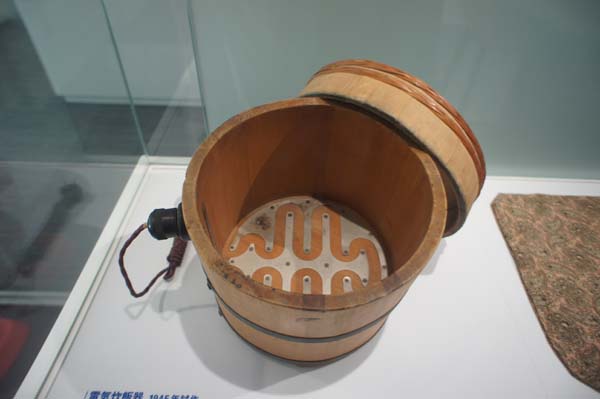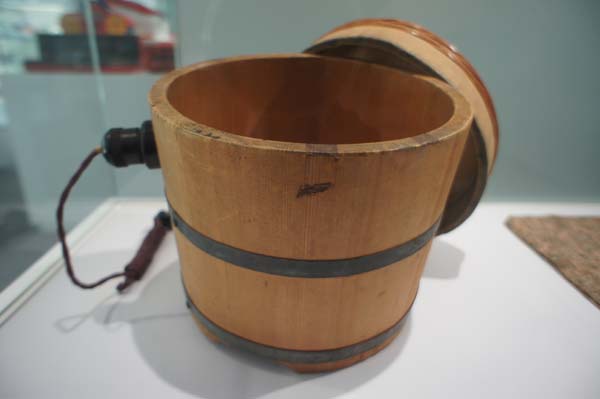 In 1945, after Japan had conceded defeat in World War II, Sony founder Masaru Ibuka invented a product to try and serve the millions of homes who had electricity but lacked the appliances to use it. The result was this electric rice cooker.
In 1945, after Japan had conceded defeat in World War II, Sony founder Masaru Ibuka invented a product to try and serve the millions of homes who had electricity but lacked the appliances to use it. The result was this electric rice cooker.
Released under the business name Tokyo Telecommunications Research Institute, before Sony itself became an incorporated company, the rice cooker was little more than some aluminium electrodes on the bottom of a wooden bucket. Depending on the unregulated electric current at the time, the kind of rice or how much water was used, the rice generally ended up served as overcooked mush or undercooked grain.
Because of this, the product was never actually released onto the market. Instead, a prototype now sits ensconced in glass at the Sony Archives in Shinagawa, a relic from a distant age before electronic gadgets were the norm.
Nick travelled to Tokyo courtesy of Sony, who saw fit to invite him to the Sony Archives, a museum dedicated to Sony’s history.
